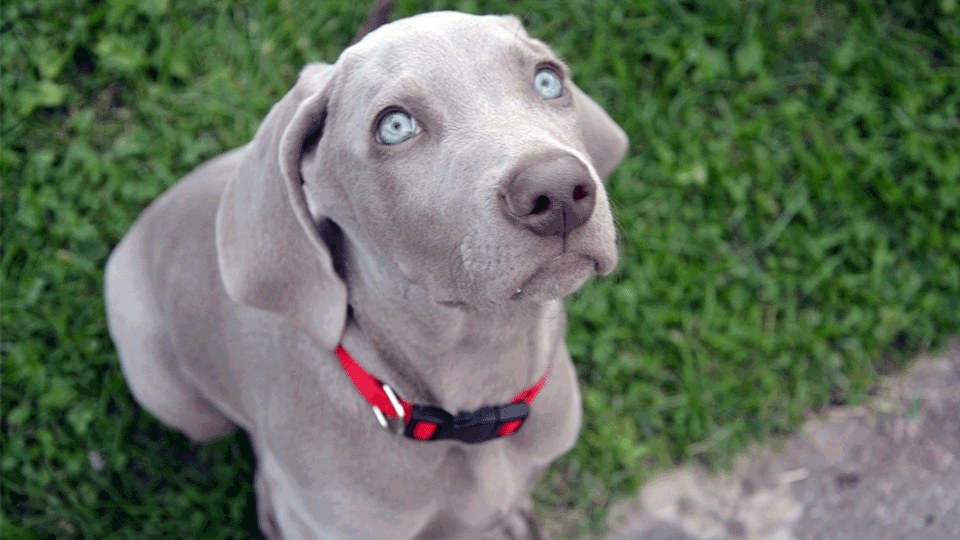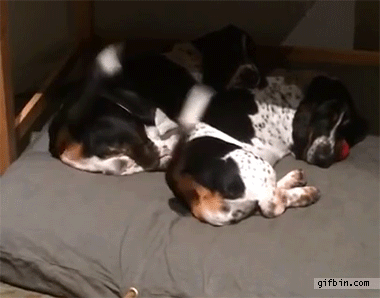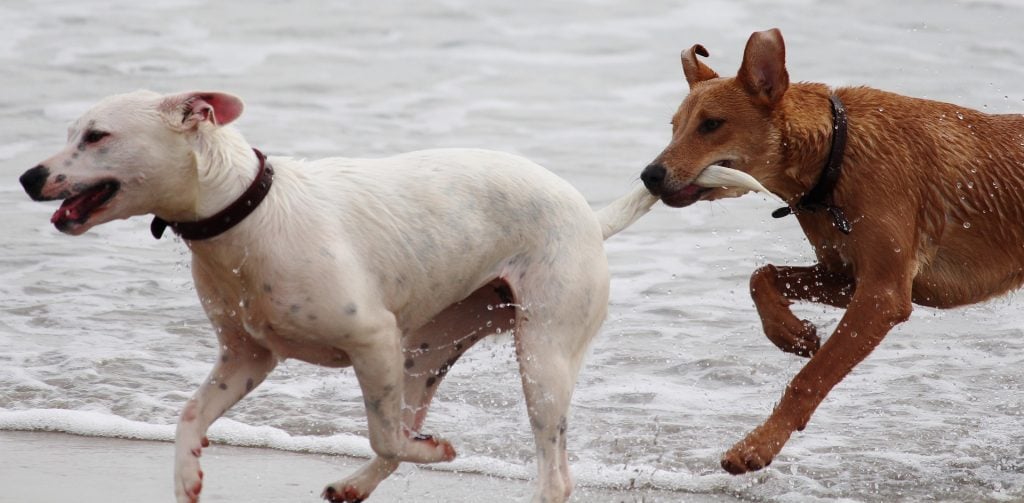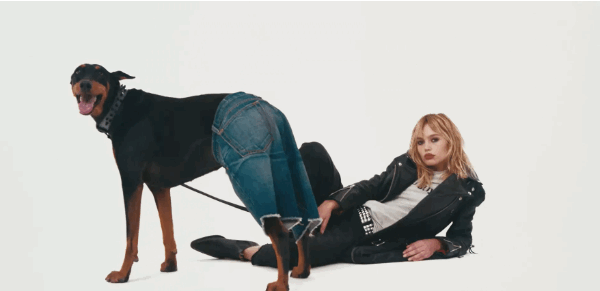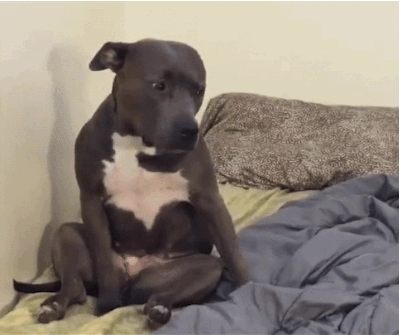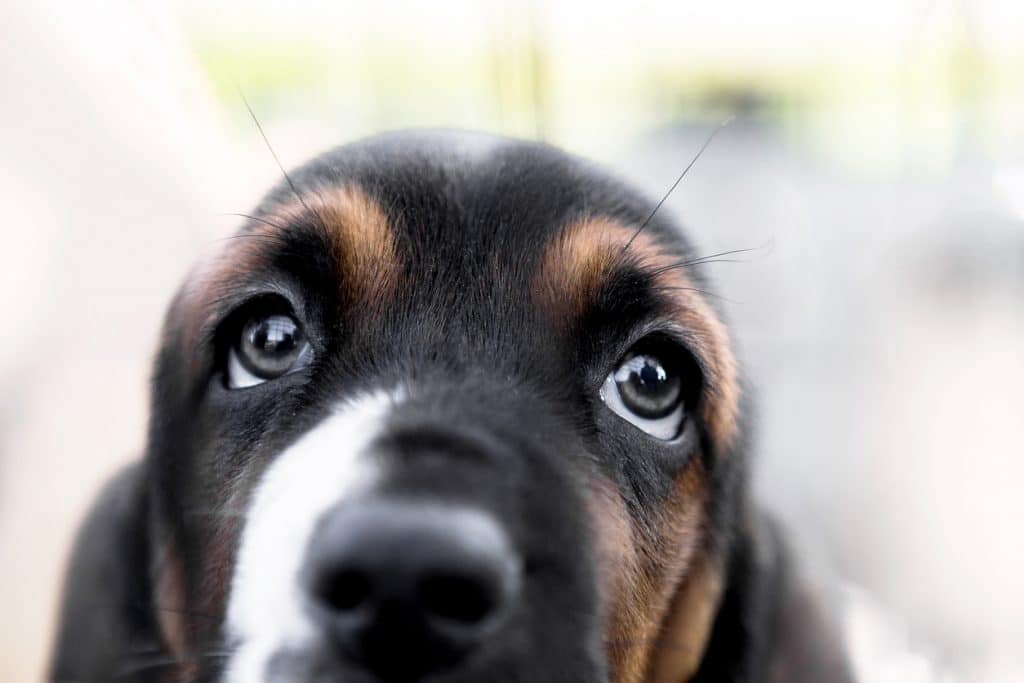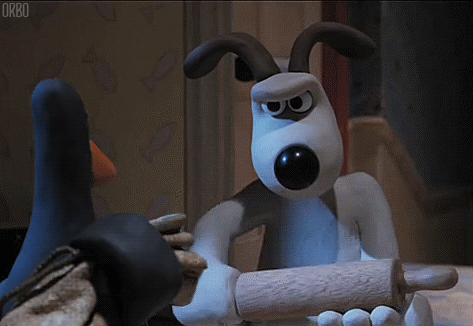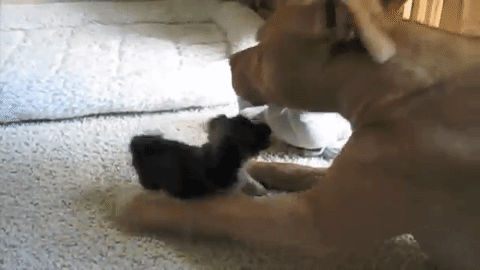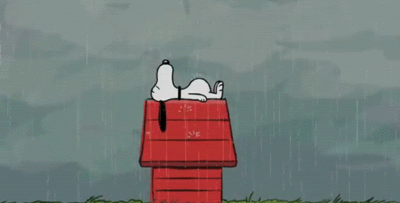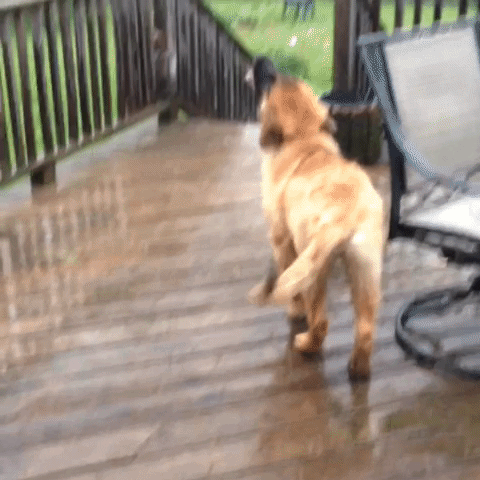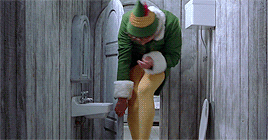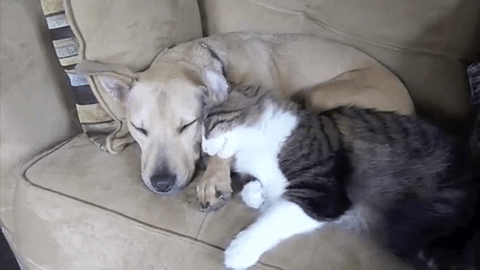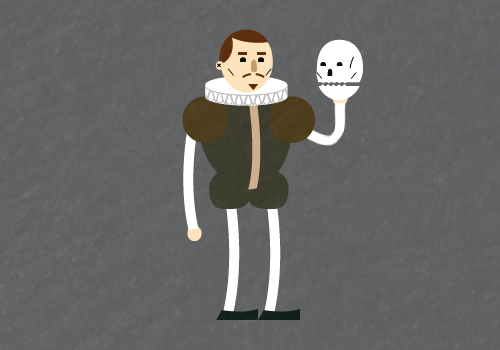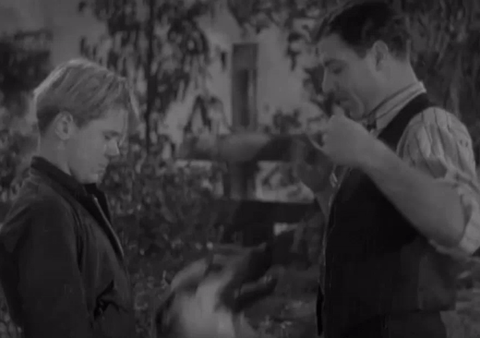The English language is practically brimming with references to our four-footed best friends, from euphemisms to Cockney rhyming slang, there are more than a paw-ful of doggy idioms. Perhaps this is unsurprising – dogs and humans have been buddies for thousands of years, after all.
We’ve rounded up all the doggy idioms we could sniff out to find out what they all mean and where they originated, and we’ve put our heads together with our office dogs to figure out how accurate these sayings really are.
‘Gone to the dogs’

Image credit: Vincent Scherer | iStock
Whether it’s politics or football teams, this phrase is used to complain about the way things are going. For example ‘this country has really gone to the dogs’. The saying probably originates from Greyhound racing. It references the dangers of gambling; a person who’s said to have ‘gone to the dogs’ is likely to be blowing their entire paycheque betting on the dog races. It might be entertaining, and addictive, but dog welfare charities like Dog’s Trust and the RSPCA are fighting for fairer treatment for racing dogs.
Another possible origin of this is saying is that when dogs were first domesticated they were fed with leftovers and scraps from our meals, so a meal can be said to have literally ‘gone to the dogs’.
Doggy Accuracy Rating: did someone say ‘leftovers’?
‘The dog’s dinner’
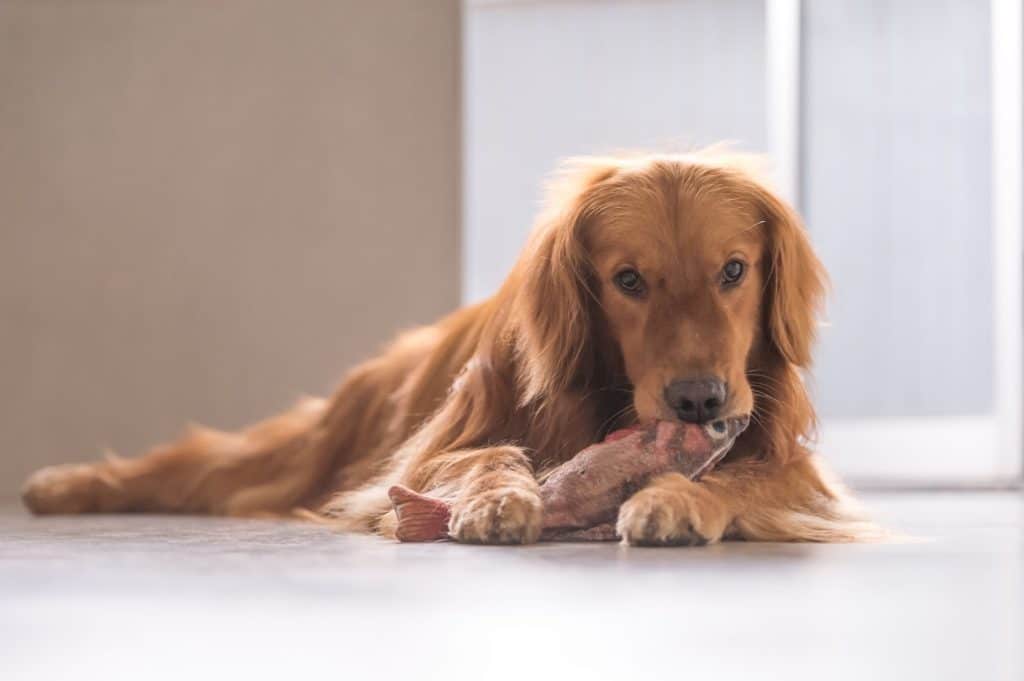
iStock/chendongshan
Similar to the previous phrase, this one’s all about how dog food is associated with scraps. We’re sure you can relate as a dog pawrent, pouring out a bowl of doggy kibble doesn’t exactly make us jealous of our pooches’ diet. That doesn’t stop this cute Collie telling his dinner-stealing housemate, ‘paws off!’!
Doggy Accuracy Rating: Every dog’s favourite time of day
‘Doggy bag’
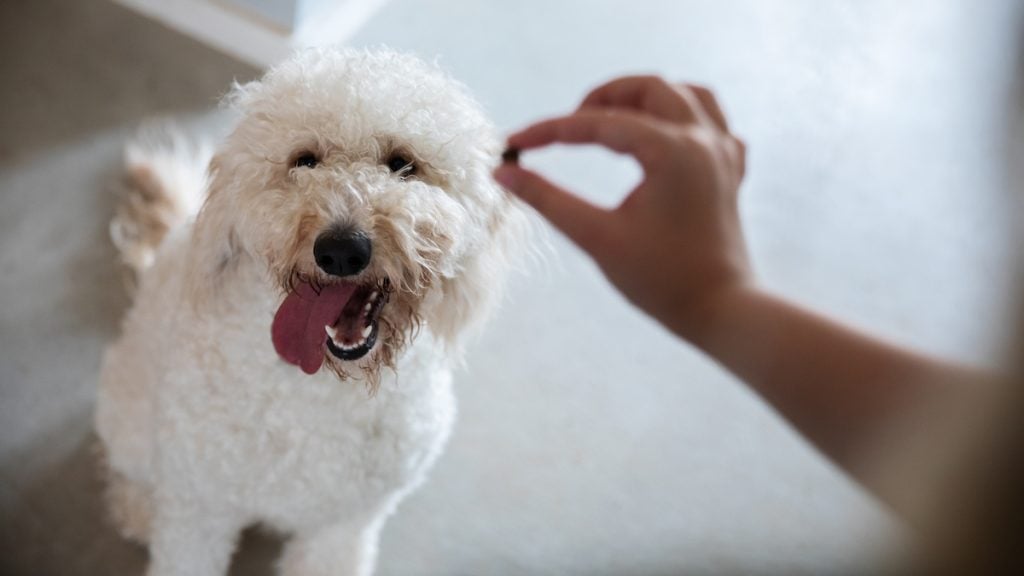
Courtney Hale via iStock
Can’t finish your meal but think it’s simply too yummy to go to waste? Why not ask your waiter for a takeaway box or parcel? It’s thought that doggy bags were first used as a polite way of asking to take restaurant leftovers home, by pretending that dinners were taking it for your pooch, who wasn’t allowed to eat in the fancy restaurant. In actual fact, the dinners just wanted leftovers for breakfast the next day. Greedy, greedy humans.
Doggy Accuracy Rating: Your dog knows you’re probably just going to eat it all yourself.
‘Let sleeping dogs lie’
Dogs love sleep, perhaps even more than us – which is saying something! We bet you’ve caught your dog sleeping in some pretty odd places, too. So, while there’s probably some common sense in letting your dog enjoy their kip, it doesn’t mean they should be allowed to lie around all the time.
If you think your dog is being a total lazy bones, why not do some exercise with your dog and keep their minds and mouths active with toys like a Kong, for example.
Doggy Accuracy Rating: Dogs need their sleep, but they also need to be kept active.
‘It’s a dog-eat-dog world’
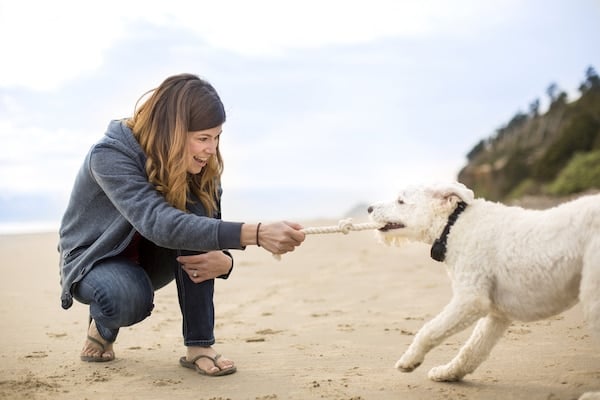
FatCamera via iStock
Feeling a little cynical? This phrase appears first in American books published around the beginning of the 20th century, and is used to describe situations in someone will do literally anything to be successful (think Frank Underwood in House of Cards or Michael Corleone in Godfather II.)
Of course, we know that dogs aren’t selfish, ruthless or backstabbing – they’re the most loving creatures on the planet!
Doggy Accuracy Rating: What the world needs now, is more dog-love!
‘Sick as a dog’

iStock/Sadeugra
Okay, the GIF is a bit misleading; this idiom almost certainly didn’t originate from skateboarding dogues and a gang of bros checking out their sick kick-flips.
‘Sick as a dog’ probably originated sometime in the 17th century, where many dogs were left to roam the streets and weren’t as loved as they are now. Sadly their lack of care and attention would’ve made them unpopular house-guests.
A bit later in history, sometime in the 19th century, the phrase ‘sick as a parrot’ was coined – apparently something to do with parrots on board Royal Navy ships. Dogs still have better skating skills than parrots, though.
Doggy Accuracy Rating: Stray dogs are much better cared for these days, there’s more work to be done, though.
‘Can’t teach an old dog new tricks’
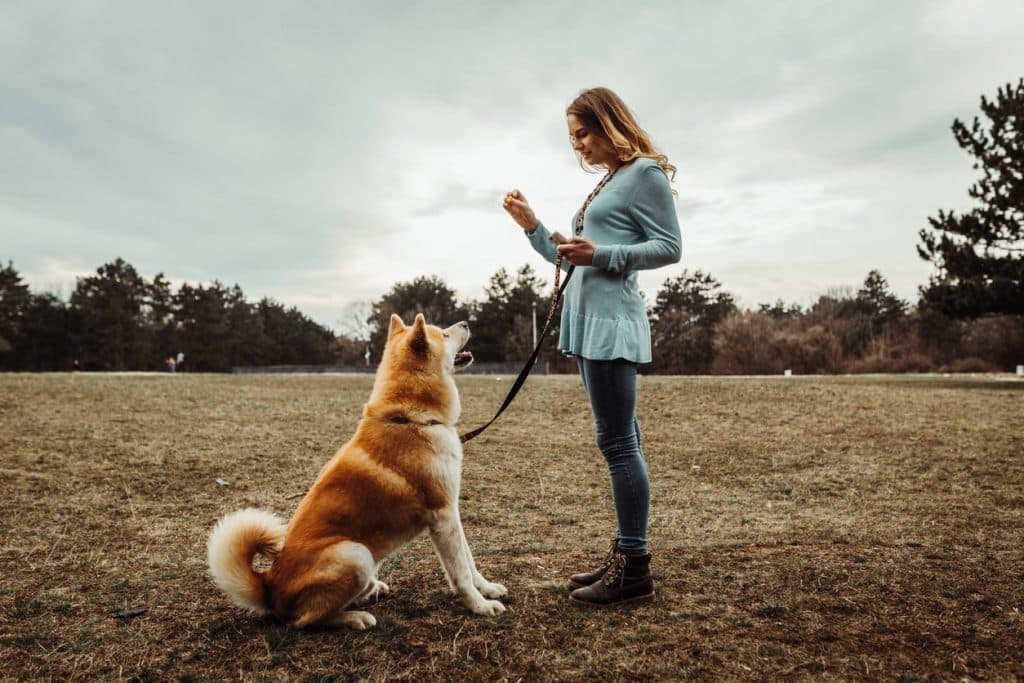
iStock/cream_ph
Can’t you? With a little determination, lots of praise and a few treats, it should be possible to teach your dog something new.
This proverbial saying is so well known that it even got an outing in a rather steamy scene in James Bond Skyfall. But it is, of course, much, much older… hailing back at least to the early 16th century. It was coined in a literal sense – as advice to shepherds to train their dogs while they are young.
Doggy Accuracy Rating:
‘His bark is worse than his bite’

iStock/Kerkez
You know the type of person who talks big and is scary at first but then you realise they’re harmless? Like a boss who shouts a lot but when you take them out for drinks, they’re actually really friendly, this saying is relatable if you’ve ever met a dog who thinks they’re a fearsome guard dog, but as soon as the intruder enters the house, all that dog wants is a belly rubs.
Doggy Accuracy Rating:
‘Hair of the dog’
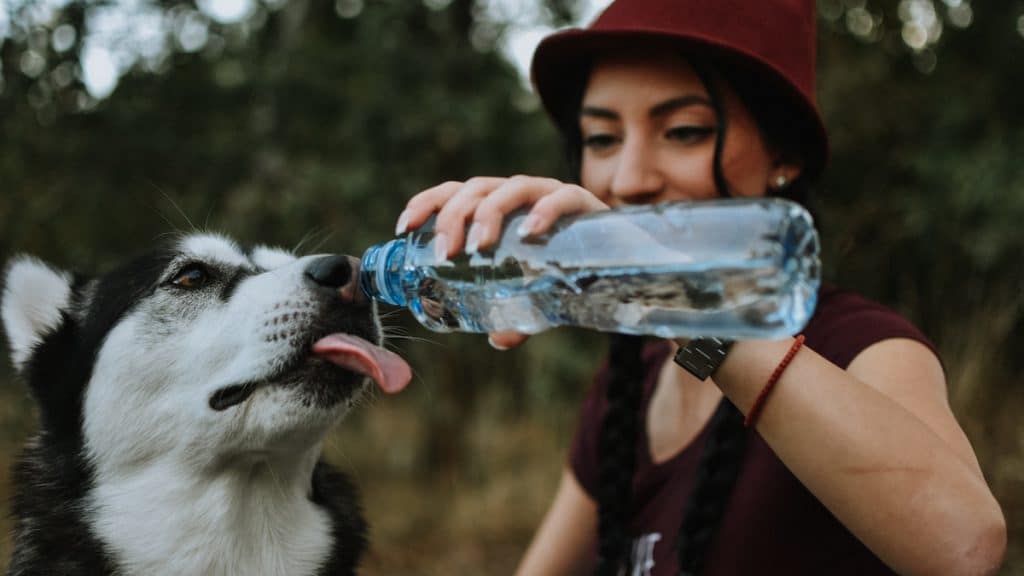
milorad kravic/iStock
The phrase is actually short for ‘hair of the dog that bit me’, which comes from the Middle Ages when it was thought that placing dog hairs on a bite from a rabid dog would cure the injury.
Thankfully, these days the UK has long been rabies-free, and the phrase ‘hair of the dog’ has been more closely associated with alcohol since the 16th century. Feeling worse for wear? There are many supposed hangover cures, ranging from a cold shower to a fried breakfast. The idea this phrase still communicates is a little bit of something bad is actually good for you. Anyone who’s ever gone to kiss their pooch and ended up with a mouthful of doggy hair can probably relate.
Doggy Accuracy Rating:
‘Like a dog with two tails’
Though it might sound ridiculous, this one really is just some basic algebra.
Happy dog = x
Where x is a wagging tail, then 2x = VERY happy dog.
We’re not too sure when this phrase was first used, but there’s not doubt that it came about because dogs love walkies very, very much.
Doggy Accuracy Rating: Dogs only have one tail, honest.
‘The tail that wagged the dog’
Similar to ‘like a dog with two tails’ this idiom references the obvious fact that happy dogs tend to wag their tails enthusiastically. But the idiom actually means that a small part (of an organisation, for example) is controlling the whole operation. The clue is in the order of the phrase – though it might seem that way sometimes, the dog is actually in control of their tail, not the other way around.
Doggy Accuracy Rating: The dogs say “We are the boss of our tails.”
‘Dog and bone’
As in any article that examines quirky sayings, it was only a matter of time until we had to talk about Cockney rhyming slang. Originating in East London this is a rather original form of slang that’s based on rhyming words and phrases. It can be confusing if you don’t understand the lingo! Some rhyming slang sayings have slipped into everyday language, and our doggy phrase here is a perfect example: dog and bone = phone.
Doggy Accuracy Rating:
(Warning: at this point, things get a bit more PG. Blame the English language. If you’re of a sensitive nature, you might want to skip the next two idioms.)
‘Doggy style’
Do we really need to explain this one? Dogs, erm, do it like this… so it can be described as ‘doing it doggy style’. In ancient Rome it was known as coitus more ferarum – which (very) roughly translates as ‘sexy time like the wild animals do’. Ahem.
Doggy Accuracy Rating: Dogs love it and we’re grateful.
‘The dog’s bollocks’
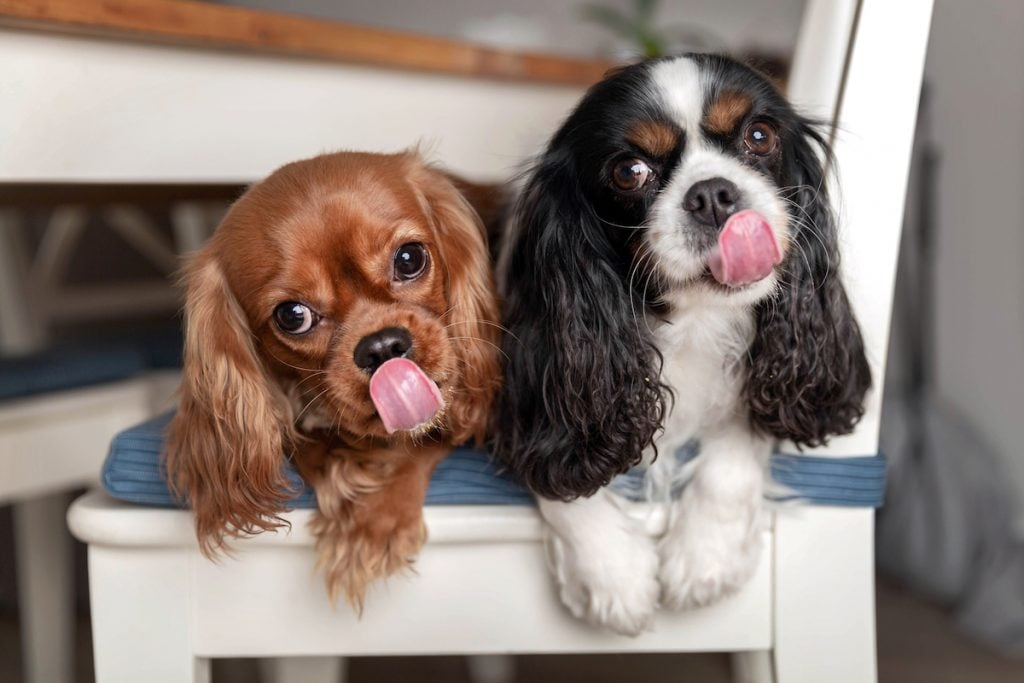
fotyma via iStock
Commonly used to say that something is the real deal, or awesome, this phrase has origins that might surprise you! For one thing, most things that are accused of being ‘bollocks’ are, well, not good.
The surprising origin of this phrase could be from the typographical colon-dash. Which looks a bit like this :-
Does that remind you of anything?
Dogs do lick them (yes, we’re talking about balls!), and so maybe there’s more truth to this than first appearances?
Doggy Accuracy Rating: Dogs are the dog’s bollocks, if you catch our drift.
‘Dog-eared’
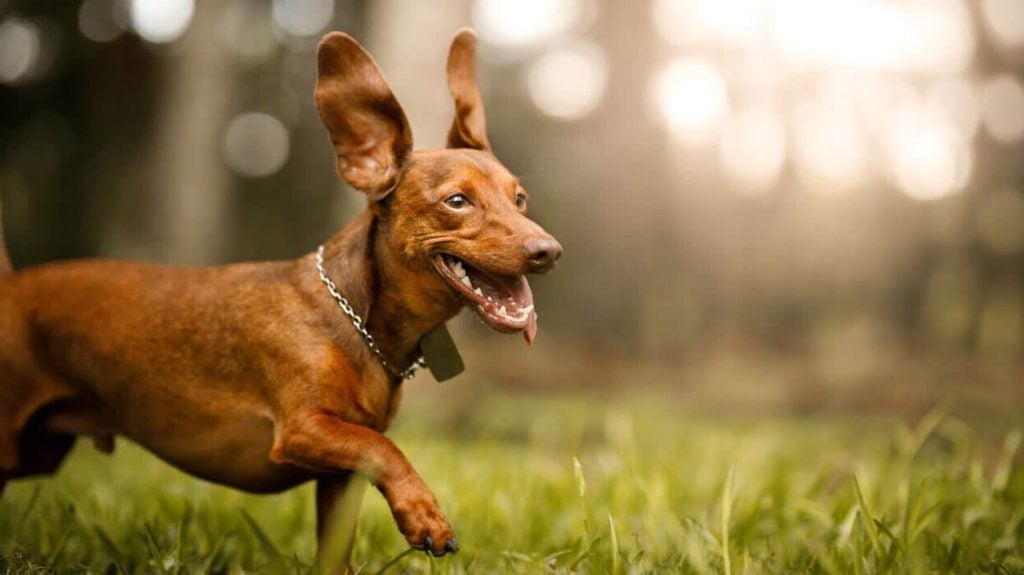
Capuski via iStock
At some point during the evolution and domestication of dogs from wolves, they became more docile and less aggressive. Their appearance also changed, becoming smaller (except perhaps for the Great Dane and St Bernard!), and their ears went all floppy, soft and cute.
This phrase is usually used to describe a book or piece of paper that’s gotten a bit tatty. Well, there’s nothing tatty about our dogs!
Doggy Accuracy Rating: This one makes sense.
‘Dogsbody’
In the 19th century The Royal Navy’s staple food was dried peas and eggs boiled in a bag – known as peas pudding or ‘dog’s body’. Later on, it became a term to describe someone who does all the work that the higher ranked Navy officials didn’t want to do. Presumably, because no-one fancied eating peas pudding. Yeah, us neither!
Doggy Accuracy Rating: We’re still working on getting our dogs to help with household chores.
‘Dog tired’
You know when you’ve been working really hard and you just can’t keep your eyes open any longer? That’s dog tired.
Doggy Accuracy Rating: Mmm, naps.
‘Puppy dog eyes’
This one’s not hard to figure out. We’ve all seen a dog do this, haven’t we? When they really want something, dogs tend to tell us with their eyes.
Doggy Accuracy Rating: Yep, yep, and yep.
‘Puppy love’
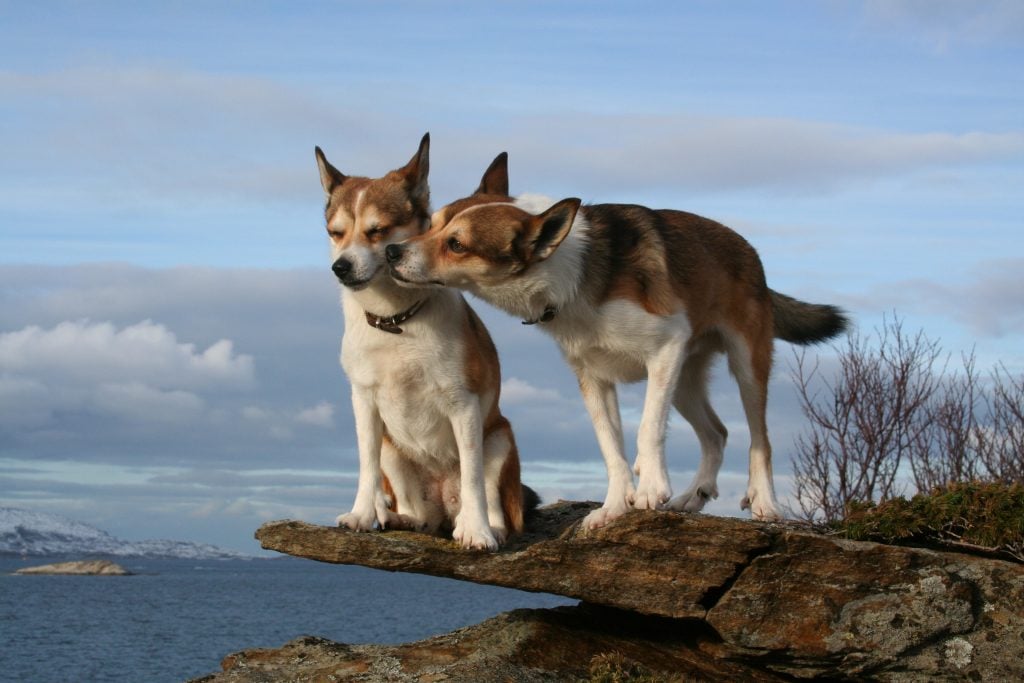
https://flic.kr/p/CSQap
‘And they call it puppy love’. So the song goes, but the phrase actually predates the Donny Osmond hit by more than 100 years. Meaning infatuated, or an adolescent kind of love, puppy love is that never clearer than the look on someone’s face when they’re falling for their new beaux. Really, it’s very mushy.
Doggy Accuracy Rating: You know that feeling when you cuddle a new puppy?
‘Work like a dog’
Dogs were historically bred to work, whether that was for hunting, like various Gundog breeds such as Springer Spaniels, Golden Retrievers, or Pastoral breeds who look after farm livestock or Working dogs like the Siberian Husky.
These dogs are high energy and need plenty of exercise, some medium energy dogs will be satisfied with less walkies time and they’ll sleep soundly!
Doggy Accuracy Rating: Most dogs these days enjoy a more leisurely pace of life, but there are plenty of examples of dogs that help humans with their very specialist skills.
‘Every dog has its day’
And sometimes, dogs even become stars of the silver screen. Like Dug the talking dog from the loveable movie Up.
Doggy Accuracy Rating: Let’s face it, every day is a dog’s day.
‘Call your dogs off’
If you tell someone to call their dogs off, you mean something like, ‘tell your friends to stop picking on me’. We’re not too sure where this phrase comes from, but we’re sure it’s got something to do with dog’s strong sense of loyalty and history as guard dogs.
Doggy Accuracy Rating: Our dogs have got our backs.
‘Underdogs’
The English love an underdog, so is that why we were so enthralled by Tim Henman for so many years? Now, as Brits, we’ve happily adopted Andy Murray, who’s proving to be a much more successful tennis player. (Sorry, Tim!)
Doggy Accuracy Rating: Look at that cute puppy!
‘In the dog-house’
Dog houses are those cute little huts that dogs sometimes live in. They often seem to feature as the abode of American cartoon dogs. (We’re thinking Snoopy, Spike from Tom and Jerry, and Pluto.) They’re handy if you’ve got a garden and your dog is happy to spend lots of time outdoors. Even so, dogs like their creature comforts. So, providing them with somewhere to snooze out of the sun or rain is important.
Most dogs like to enjoy the company of their human parents, but if they’ve ever been a naughty pup, the ‘dog house’ is both a real place and a metaphorical place for them to be sent. Ever been in trouble or in someone’s bad books? Chances are you were ‘in the dog house’ and you never knew it.
Doggy Accuracy Rating: We all know what this feels like.
‘Raining cats and dogs’
There are more theories on where this phrase might have come from than dog treats in all the world. Ideas including references to Norse mythology, translations of obscure French terms, and even odder speculation involving thatched roofs. (Don’t ask!)
The most probable sounding proposal is that ‘raining cats and dogs’ comes from poet Jonathan Swift’s satirical poem A Description of a City Shower – in which he criticises 1710 London society, suggesting that it was as bad as heavy rain that would flood the streets with poor, drowned animals. Swift later wrote a book collecting common and clever phrases – including ‘raining cats and dogs’. So there we have it, sorry folks.
Doggy Accuracy Rating: Umbrellas at the ready…
‘See a man about a dog’
Do we really have to go into detail on this one? ‘See a man about a dog’ can be said in any context to mean you’re doing something a bit too naughty to mention but is mostly associated with stealing away some alone time for a number two. The phrase may have originated from a 19th century play called Flying Scud in which a character excuses himself from a difficult conversation by saying ‘Excuse me, Mr Quail, I can’t stop; I’ve got to see a man about a dog.’ Now you know!
Doggy Accuracy Rating: Dogs don’t mind doing number two’s in public.
‘Fighting like cats and dogs’
All love here, no fighting.
Admittedly, their ancient ancestors may not have been chums. After all, in prehistoric times, dogs and cats probably fought over many things such as territory and food. These days, humans have taken to the internet to fight out it out – who will win, team cat or team dog? We think we know the answer, even if we are a tad biased!
Doggy Accuracy Rating: Dogs and cats make great buddies.
‘Let slip the dogs of war’
We have a lot to thank Shakespeare for. He gave us Romeo and Juliet and a spattering of English phrases, many of which are used every single day. Did you know we can thanks Willy Shakespeare for giving us ‘wild goose chase’, ‘not slept one wink’ and ‘faint-hearted’. His most famous doggy line of verse is from Julius Caesar and goes like this; “Cry ‘Havoc,’ and let slip the dogs of war”.
This probably refers to ancient warfare Shakespeare is imagining his hero unleashing a horde of warriors to cause total chaos for his enemies. Zoom forward to the 21st century and the phrase has lost these gruesome overtones and simply means ‘cause disorder and confusion’, which is totally relatable when you witness playtime time here at DogBuddy HQ.
Doggy Accuracy Rating: Playtime = joyful chaos!
‘Dogs are man’s best friend’
We had to finish with this. Dog and humans have a friendship that stretches many hundreds of thousands of years into the past. It was a partnership that began with wolves being thrown scraps in return for protecting our camps. Later, we domesticated them and they gradually evolved into dogs. And the rest, as they say, is history.
Doggy Accuracy Rating: All the dogs agree, humans are here to stay.
So there we have it. 29 common English phrases about dogs, proving that dogs have had a massive impact not just on human’s evolution, but on the English language, too!
Did we miss any, or do you know any other explanations for why we use these sayings?Let us know on Facebook! We’re not just about adorable dog gifs and dog facts at Rover.com, we also have plenty of dog walkers and sitters who offer dog boarding in your area!
